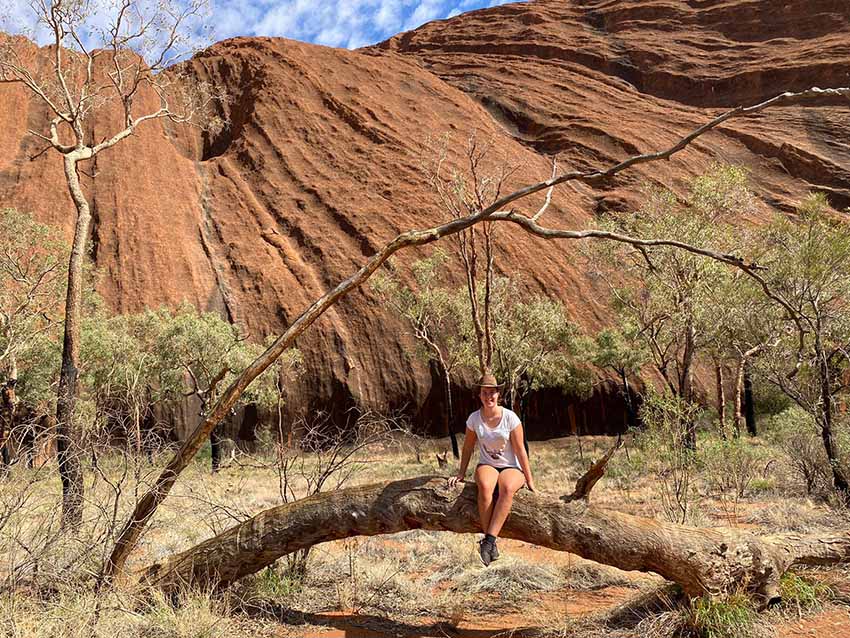 How will we live in 2040? Jasmin Rooks looks into the
How will we live in 2040? Jasmin Rooks looks into the crystal ball and finds cause for optimism.
By Jasmin Rooks
WHEN I was asked to speak about climate change from the perspective of the youth, I began thinking of a few positions that are unique to the younger generation.
Firstly, we have never known a life without climate change. For the past 20 years, equal to my entire life, rising temperatures and sea levels have frequently made international headlines. The ignorance and denial surrounding climate change in the 20th century is no longer an option for us. We are left with no choice but to acknowledge that without intervention the environment won’t be saved.
WHEN I was asked to speak about climate change from the perspective of the youth, I began thinking of a few positions that are unique to the younger generation.
Firstly, we have never known a life without climate change. For the past 20 years, equal to my entire life, rising temperatures and sea levels have frequently made international headlines. The ignorance and denial surrounding climate change in the 20th century is no longer an option for us. We are left with no choice but to acknowledge that without intervention the environment won’t be saved.
When growing up everyone likes to dream and plan about what the future holds for them. However, climate change has forced us to face a reality that we may not have the option to live out our dreams. At any age, this is a terrifying thought, and for the youth, it is something we individually must address.
As young people, we did not initiate climate change, yet every day our lifestyle contributes to it. Releasing greenhouse gases into the atmosphere and other pollutants into the environment began decades before I was born. However, the system we currently live in makes it virtually impossible to lead a carbon-neutral life. So, while blame is often placed on adults for creating climate change, we, as the youth, are not exempt, and every day our lives contribute to global warming.
As young people, we did not initiate climate change, yet every day our lifestyle contributes to it. Releasing greenhouse gases into the atmosphere and other pollutants into the environment began decades before I was born. However, the system we currently live in makes it virtually impossible to lead a carbon-neutral life. So, while blame is often placed on adults for creating climate change, we, as the youth, are not exempt, and every day our lives contribute to global warming.
| This legacy combined with our contribution to global warming has spurred many younger people into creating change, with worldwide protests in 2018 encouraging millions of people to fight for climate action. Many of these protests were initiated by Greta Thunberg. | This is a transcript of Jasmin Rooks’ speech at the launch of the Bass Coast Sustainability Festival where she was asked to represent young people. |
The action taken by so many people, and the difference it has made worldwide in the fight for carbon neutrality, makes me proud. While we will never know for sure, the confirmation of Scott Morrison attending the next climate meeting may have been a result of these protests.
At times climate change brings up many negative emotions and can become overwhelming. Conversely, many aspects about it leave me very excited. People are coming together from all over the world and developing advances in technology that would’ve taken decades if we didn’t have climate change as an incentive. The uptake of electric vehicles in certain countries is amazing, and personally I can’t wait to own my own. The technology that has been and will be invented in the next few decades will create a way of life in 2040 that is unrecognisable to people today.
In 2000, the idea of iPhones or totally online workplaces would’ve been unimaginable, yet today they are so common. We can only wonder what another 20 years will do to sectors like home life, energy consumption, transport and food production.
One aspect of climate change that I find most thrilling is the positive light and respect it places on the environment. For a very long time the environment has been seen as a resource, one we can take as much as we wish from. Recently this has been proven wrong. Now people see it as a tool that we can work with and benefit from if we protect it correctly.
By 2040 we will know whether we have mitigated global warming enough to save our futures. Assuming we do, this would be one of the greatest accomplishments of humans, and an amazing opportunity for us, as youth, to see it through.
I’d like to focus on the theme of the Bass Coast Sustainability Festival, specifically what would a comfortable home look like in 2040.
Last weekend, two friends and I moved into my first house without parents. It’s a three-bedroom, single-storey place in Box Hill. Several aspects to this house that I noticed as environmentally friendly are the many north-facing windows, the eaves around them, and the well insulated walls. The house is also a reasonable size for three people, with no wasted space.
However, if I were to move into this same house in 2040, there would be some significant differences:
Thank you for allowing me to speak on behalf of the younger generation today. It’s a very important topic for us, as we have the most to lose when regarding climate change.
Jasmin Rooks is studying for a Bachelor of Environmental Science at Deakin University, majoring in wildlife and conservation biology. Phillip Island has always been her home.
At times climate change brings up many negative emotions and can become overwhelming. Conversely, many aspects about it leave me very excited. People are coming together from all over the world and developing advances in technology that would’ve taken decades if we didn’t have climate change as an incentive. The uptake of electric vehicles in certain countries is amazing, and personally I can’t wait to own my own. The technology that has been and will be invented in the next few decades will create a way of life in 2040 that is unrecognisable to people today.
In 2000, the idea of iPhones or totally online workplaces would’ve been unimaginable, yet today they are so common. We can only wonder what another 20 years will do to sectors like home life, energy consumption, transport and food production.
One aspect of climate change that I find most thrilling is the positive light and respect it places on the environment. For a very long time the environment has been seen as a resource, one we can take as much as we wish from. Recently this has been proven wrong. Now people see it as a tool that we can work with and benefit from if we protect it correctly.
By 2040 we will know whether we have mitigated global warming enough to save our futures. Assuming we do, this would be one of the greatest accomplishments of humans, and an amazing opportunity for us, as youth, to see it through.
I’d like to focus on the theme of the Bass Coast Sustainability Festival, specifically what would a comfortable home look like in 2040.
Last weekend, two friends and I moved into my first house without parents. It’s a three-bedroom, single-storey place in Box Hill. Several aspects to this house that I noticed as environmentally friendly are the many north-facing windows, the eaves around them, and the well insulated walls. The house is also a reasonable size for three people, with no wasted space.
However, if I were to move into this same house in 2040, there would be some significant differences:
- The gas stove and ducted heating would be replaced with electric options. These, as well as the rest of the house would be powered by home solar panels, with a battery that supports energy needs when the sun is not shining.
- In the garage would be an electric car, with a bi-directional charging system, allowing the car battery to support the house when the home battery is low.
- The large north-facing windows would be replaced with double glazed ones, and the venetian blinds would be traded out for better insulating options.
- Perhaps the house will even have the popular Japanese system where the water used to wash your hands fills up the toilet for the next person.
- In the fridge you won’t find any animal meat, instead it will have been replaced by plant-based alternatives.
Thank you for allowing me to speak on behalf of the younger generation today. It’s a very important topic for us, as we have the most to lose when regarding climate change.
Jasmin Rooks is studying for a Bachelor of Environmental Science at Deakin University, majoring in wildlife and conservation biology. Phillip Island has always been her home.
